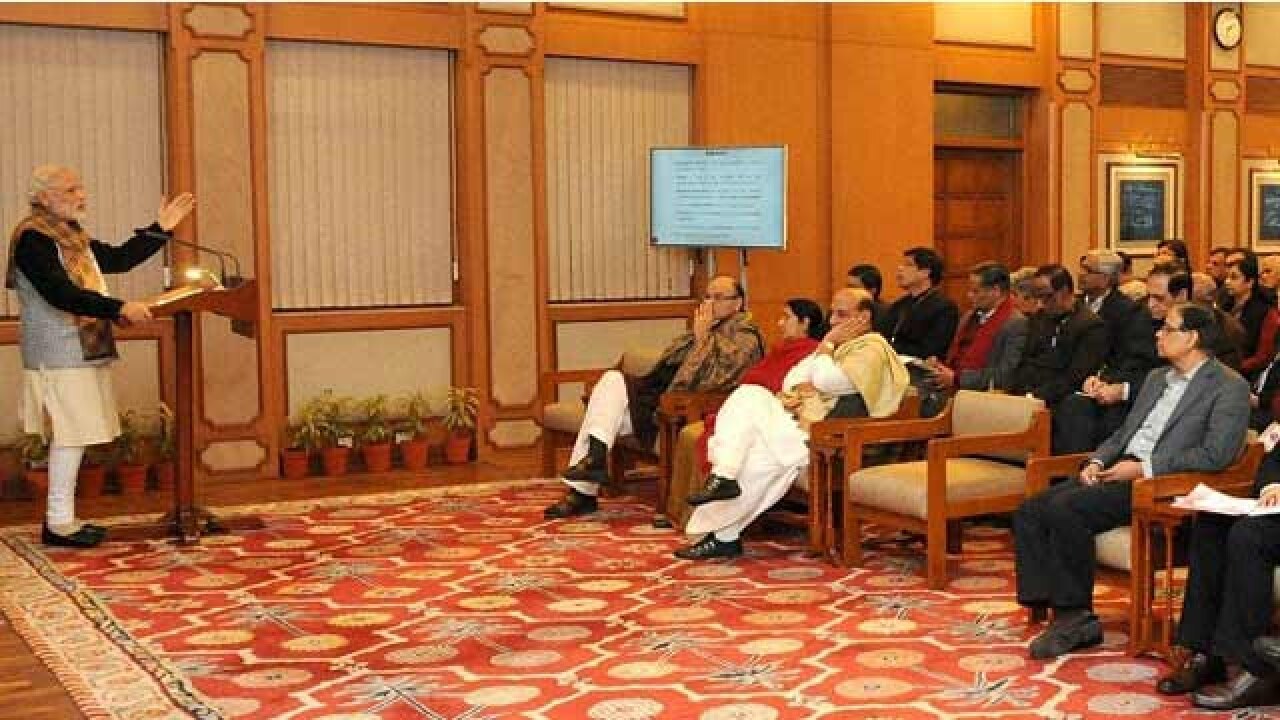
In the past year, India has been buzzing with the possibilities of start-ups. Many ‘angel investors’ from around the world have been pumping funds into hundreds of start-ups in the country. In the same spirit, Prime Minister Modi is chairing a major summit on start-ups tomorrow, January 16.
The reality on the ground, however, indicates that all is not well with Indian start-ups. In recent weeks, several start-ups have been closing down or being downsized. There may be many reasons for the same, but a key factor is the narrow and somewhat ‘borrowed’ approach to start-ups. Focusing on technology solutions for a thin slice of metro-consumers with super-smart phones is not what a large number of Indian households need today. An app-based grocery shopping start-up assumes that time is of value for consumers. But, with the price of food items being unaffordable for a large percentage of households even in metros and Tier 1 and 2 cities, saving time while shopping is the least of their priorities.
In the new year, and prior to the start-up summit on January 16, the Prime Minister has asked all secretaries to Government of India to generate some ‘out of the box’ solutions for the problems of socio-economic development that the country is facing today. However, new and creative solutions can only work if the existing institutions and systems work according to their mandates. Today, a vast majority of institutions—both public and private—in the country are under-performing due to outdated institutional designs and systems, and weak human capability. Technology-driven start-ups and ‘out of the box’ solutions cannot be a substitute for the basic and robust functioning of all institutions on a day-to-day basis.
Proposals for the Smart Cities challenge initiated by the Government of India have been received from 98 cities. Most of these proposals have been prepared by laptop-carrying consultants. But the capability of municipal institutions has not been strengthened. Bypassing the governance of municipalities by hoisting a Special Purpose Vehicle (SPV) to be managed by an official does not build municipal capabilities. In fact, it weakens them further as it makes them dependent on external expertise. This problem was visible during the JNNURM programme itself, launched a decade ago. Sustained investment in building institutional capabilities in all municipalities is essential for any long-term ‘smartness’.
Similarly, delivery of primary and secondary education of high quality, in a sustained manner over generations, requires capable and motivated teachers and enabling physical facilities. Before any technology app is launched to implement an 'out of the box' solution for quality primary education in India’s rural and suburban areas, it is urgent that recruitment, training, supervision and performance of teachers and their supervisors is professionally managed consistently in all blocks and districts of the country.
Swachh Bharat Mission (SBM) is focusing on a critical requirement for socio-economic development of the country. But recent reports from the field indicate that past problems of water availability and willingness to use new toilets continue. Solutions to these chronic challenges do exist, and ways to implement them have been known. Merely throwing money on construction of toilets will not work. Mobilisation and participation of local communities, panchayats and municipalities is essential— a task that cannot be carried out by government officials without active partnership with local development organisations, NGOs and civil society. No new ‘app’ will fix this.
Numerous such examples can be quoted from everyday life. Public institutions and staff working in the same need to be revitalised, strengthened, monitored and made accountable. Hundreds of practical recommendations from second Administrative Reforms Commission and numerous Committees constituted by Department of Personnel and Training (DOPT) are available for implementing in-box solutions first, before we worry about thinking ‘out of the box’. Hundreds of training institutes ‘owned’ by various ministries of different governments are unable to perform the basic functions of training public officials in a high-quality manner, a task that should be easily doable in the country.
Therefore, as the sun shifts to its ‘Uttarayan’ trajectory today, as Pongal and Makar Sankranti are celebrated in this land, let us focus attention on the basics first— strengthen accountability and capable functioning of all public institutions and staff. Let us not forget, that sun’s trajectory shifts annually, around the same time!
The author is Founder-President, PRIA and UNESCO Chair on Social Responsibility of Higher Education.